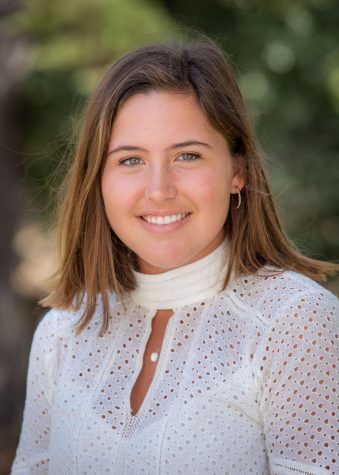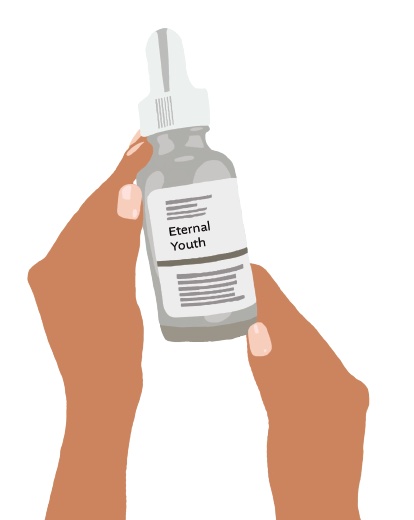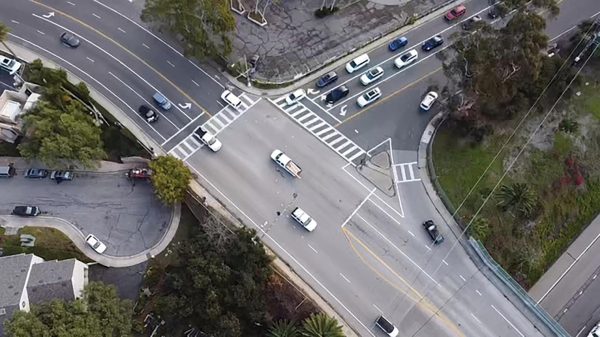Why Is It Important for Students To Get Vaccinated?
The delta variant is spreading around the world. The United States has reached 700,000 deaths. When will the unvaccinated get the shot?
Kaiser Family Foundation polls have shown that up to 20% of U.S. parents of 12-17 year-olds will ‘definitely not’ get their kid vaccinated, with even 9% of vaccinated parents firmly opposed the shot.
November 17, 2021
In Santa Barbara County, only 63% of 12-17 year-olds have been at least partially vaccinated, and no children under 12 have had the opportunity to get vaccinated yet.
The numbers are leagues away from the high vaccination rates of 80-90% needed to achieve herd immunity.
Experts are worried about variants and vaccine hesitancy reducing the potency of vaccines and allowing more dangerous forms of the virus to spread and mutate. They understand there’s only one way out of the pandemic: with vaccination.
“Currently authorized vaccines in the United States are highly effective at protecting vaccinated people against symptomatic and severe COVID-19,” according to the Centers for Disease Control and Prevention (CDC).
Only 0.00005% of vaccinated people have been hospitalized, and the unvaccinated are 11 times more likely to die of COVID-19 upon infection.
These basic facts have long been known. Now is the time to take conclusive action. We all need to do our part and get vaccinated for the good of ourselves, our family, friends, and communities.
Luckily, in the coming months it will be required in every private and public school across our state, as California recently announced they were adding the COVID-19 vaccine to the regular vaccination schedule.
But even before the man date comes into effect, it’s essential to get vaccinated. Dozens of young children across the country who cannot be vaccinated yet are being patched to ventilators in hospital ICUs, fighting for their lives.
According to the CDC, hundreds of others have been incapacitated by MISC (Multisystem Inflammatory Syndrome in Children).
This mysterious COVID-19 syndrome affects the heart and other vital organs, leaving children with severe and long-term organ damage.
Evidence that children may experience similar adult-like long COVID-19 symptoms that can be “debilitating and [can] lead to long school absences” was found when a study examined children who experienced 68 months of symptoms reminiscent of adult long-haul COVID-19.
COVID-19 doesn’t just affect the elderly or the immunocompromised, and everyone in our community must be vaccinated so that they are safe.
Polling by the firm Ipsos has shown that parents of 5-11 year old kids are hesitant about the vaccines, with only 2/3 planning to get their child vaccinated when the vaccine is approved for that age group.
Kaiser Family Foundation polls have shown that up to 20% of U.S. parents of 12-17 year-olds will ‘definitely not’ get their kid vaccinated, with even 9% of vaccinated parents firmly opposed the shot.
Vaccine and COVID misinformation has been incredibly potent in its virility on social media, allowing for fake facts and fears to be amplified, even as the virus becomes more deadly for the unvaccinated.
The delta variant is more than two times more contagious than all previous variants and has been the dominant strain since June.
Delta is more effective at evading immune responses from both unvaccinated and vaccinated, causing tens of thousands of more deaths and more breakthrough infections.
Without reaching herd immunity, more mutations will occur as the virus spreads unchecked among the unvaccinated population, causing more deaths, economic ruin, and the possibility of a vaccine resistant variant.
Head of School Ron Cino said that Laguna Blanca “strongly recommends that students and employees get the vaccine because we think it contributes to overall health individually and for the community.”
Cino said Laguna decided they “weren’t going to mandate the vaccines until they were mandated by the state” due to eligibility complications but expects a state mandate in the future.
Cino also said a “majority of eligible students” were vaccinated, and the numbers were “reasonably good and reflective in many ways to our area.”
However, there was still “a substantial number of people who haven’t received the vaccine, even if they’re eligible.” While the pandemic is not yet over, Cino said, “We’re fortunate to live in an era where people can develop safe vaccines for something as significant as COVID-19 so quickly.”
Although he wasn’t at Laguna last year, he’s glad the situation has improved from “The way we all felt as educators and families [which] was so much more vulnerable a year ago.”
Cino said due to vaccination and better health practices, Laguna has been able to become “much more relaxed now.”
Cino said Laguna would continue to follow health guidelines and keep our masks on indoors and when we’re in dense circumstances for the foreseeable future.
Laguna’s guiding principle so far, according to Cino, has been to follow the experts. “Whatever is being recommended, we’re recommending, whatever is being mandated, we’re mandating,” he said.
On the culture around the pandemic, specifically about the weariness and mental health challenges people have experienced, Cino said that the recent professional development day focused on mental health.
He understands that “People are tired, people are exhausted, everyone’s ready to be done. We still need to take COVID-19 seriously. We can’t let our guard down,”
“We need to name the fact that mental health is a real concern.”
During the pandemic, mental health across the board has suffered, with youth disproportionately seeing increases in mental illness.
According to a Kaiser Family Foundation (KFF) poll, over 25% of Californian adults reported anxiety or depressive disorder symptoms.
A CDC poll found 25.5% of 18-24 year-olds had seriously considered suicide in the last 30 days, underscoring the dire risk the pandemic poses.
Understanding that “We’re not alone, and we still need to keep looking out for each other is really important,” Cino said.
According to every public health expert and regulatory agency, vaccines are the safest, easiest, and most effective way we can get out of a pandemic.
The COVID-19 vaccines have demonstrated to be over 90% effective, according to the CDC. Safety wise, the vaccines have been field-tested and have shown to have few side effects while adverse reactions remain extremely rare.
The pandemic has been a world-altering experience, shattering countless lives, plunging our economy into disaster, and killing over 700,000 people in our country alone.
Unfortunately, it isn’t yet over. If we want to get back to normal and finally end this pandemic, everyone must be vaccinated.
COVID-19 vaccines are available at multitudes of locations, from your primary care physician to pharmacies. Use vaccines.gov to find a location near you.



















